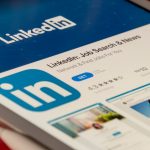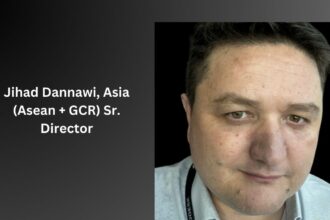By Alexis Chuah
But I was there for business: to make sure the carefully curated media opening for our new South Korean headquarters go as planned – and deliver my welcome to the journalists in Korean, a language I did not speak beyond “Annyeong” and “Kamsahamnida”.
Neither my manager nor my South Korean colleagues had requested I do that – after all, we were an American company, and we had hired a professional interpreter for the event.
But I loved foreign languages and was excited about making a connection with the people on whom I would be counting for favorable media coverage for my company.
I was engrossed in how the event would strengthen the company’s position in the competitive South Korean market and was marveling at the South Korean work ethic and people that I was experiencing before my eyes — so busily occupied that the possibility of failing at my audacious attempt to public speak in a language I barely knew completely did not cross my mind.
I forgot to focus on myself – and that must have made me fearless.
I could have easily been tempted to feel self-conscious about how I looked and sounded. South Korea, after all, was a highly competitive and perfectionist society. Professionals were expected to not only be competent at their jobs, but also well dressed and physically attractive – bare minimum standards in South Korea that in laidback Malaysia (where I am from) would have been considered a bonus.
But bigger, more important objectives saved me from my PRIDE, allowing me to conquer these following five factors to be able to speak in public fearlessly, whatever the language I may be using, however competitive the culture of my speaking venue may happen to be.
- Conquer Professionalism
If fear is a factor in your public speaking, professionalism may be just the antidote you need.
Aspiring to deliver your speech to the highest standards of excellence means you will be so task focused, your motivation will come from the ethos of the profession. Speakers speak to impart value to the audience, not to be adulated like divas. Free from the need to impress, you will be free from the fear of public speaking itself.
Practicing my Korean lines during my Penang – Seoul flight, I was driven by a sense of obligation to honor the South Korean journalists that would be covering my event on their home ground, for their local audience. What could be more fitting than to make an effort to welcome and thank them in their own language?
- Put in the Research
Speakers who take their speaking engagement personally will rehearse in order to be flawless. The ones inclined more towards a professional sense of duty will place equal – if not more – emphasis on research.
Researching not only your topic but also your audience helps you overcome fear because:
- The more you have to share, the more enthusiastic you get, and the less nervous you become
- The more you know your audience, the more human they start to feel, the less you will fear their judgement
- The more you know how to connect with your audience, the less you need to impress them
Prior to my trip to Seoul, I spoke to my mentor for pointers on their work culture; got my sister -in-law (who is Korean) to vet through my speech; and found a contact who helped me understand the media publishing cycle in South Korea.
That gave me insights into how to adapt once I got to the Seoul office and met with my colleagues and the journalists.
Research will empower you with what to do and what to say – and when you are prepared, any fear you have will dissipate.
- Capture Your Audience’s Interest
Fearless speakers are concerned about capturing their audience’s interest, and not impressing them. Winning your audience’s interest means placing yourself in their shoes, wondering what matters to them and not you.
In Seoul, I was introduced to the journalists as simply the “PR manager from Malaysia/Singapore” – and that was all they needed to know about me. Their interest was in the company and its offerings, and what the new headquarters in that glamorous part of Seoul meant to the company’s strategy in Korea and Asia Pacific – things that would make the story newsworthy to the business community.
- Focus on Your Delivery
Professional speaking is about the effective delivery of a message. Despite having a mastery of their subject, fearless speakers see themselves more as messengers than experts. Messengers serve, experts tell. Messengers look forward to connecting, experts look forward to showcasing.
When your focus is on delivering a message and connecting with your audience, the pressure to avoid mistakes is lifted, and so is the fear of being judged.
I enjoyed the process of delivering my welcome to the journalists because all I wanted was to make them feel welcome and appreciated, that the foreign communication manager cared enough to learn a thing or two about their language and culture.
- Generate Enthusiasm
The final and most powerful antidote to the fear of public speaking, enthusiasm overpowers all things negative. It stems from love, and perfect love casts out all fear.
If you happen to be a reluctant speaker, find reasons to become enthusiastic about your opportunities (or even obligations!) to speak.
Years ago, a mid-sized company CEO came to me for coaching in public speaking. He was afraid of being seen as incompetent and had been turning down speaking invitations despite the opportunities that the gigs presented to his business.
I urged him to consider that his credibility was not a question and that the audience would be eager to learn from him. He agreed wholeheartedly – and delegated the next speaking invitation to his executive assistant!
To overcome the barriers to public speaking, you need to generate enthusiasm.
As it turned out, my Korean speaking attempt ended with an appreciative applause – and the journalists did write wonderful articles about the event, thanks to our well-prepared spokespeople and press kits.
At the time of writing of this article, I am preparing to conduct my first full-fledged Thai language corporate training – a much more challenging task than delivering a brief welcome remark in Korean.
And thankfully, my P.R.I.D.E has been effective in keeping fear out and my focus in the right places.
Alexis Chuah is a former regional communication practitioner, Alexis is now a corporate trainer. She is also Vice President of the International Association of Business Communicators Malaysia chapter.
















